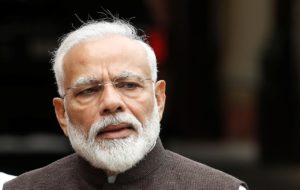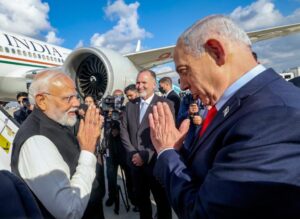What Is The Rules-Based Order? Where Could It Be Heading Next?

Central to the international rules-based order was the establishment of institutions such as the United Nations (above), the International Monetary Fund and the World Bank. These institutions aimed to promote political cooperation, the peaceful resolution of disputes, and economic recovery for countries damaged by war
The phrase “international rules-based order” has long been a fixture in global politics. Western leaders often use it to describe a framework of rules, norms and institutions designed to guide state behavior. Advocates argue that this framework has provided the foundation for decades of stability and prosperity, while critics question its fairness and relevance in today’s multipolar world.
But what exactly is the international rules-based order, when did it come about, and why do people increasingly hear about challenges to it today?
The birth of a universal vision
The rules-based international order, initially known as the “liberal international order,” emerged from the devastation of World War II. The vision was ambitious and universal: to create a global system based on liberal democratic values, market capitalism and multilateral cooperation.
At its core, however, this project was driven by the United States, which saw itself as the unmatched leader of the new order. The idea was to replace the chaos of great power politics and shifting alliances with a predictable world governed by shared rules and norms.
Central to this vision was the establishment of institutions such as the United Nations, the International Monetary Fund and the World Bank. These institutions, alongside widely accepted norms and formalized rules, aimed to promote political cooperation, the peaceful resolution of disputes, and economic recovery for countries damaged by war.
However, the vision of a truly universal liberal international order quickly unraveled. As the Cold War set in, the world split into two competing blocs. The Western bloc, led by the United States, adhered to the principles of the liberal international order.
Meanwhile, the Soviet-led communist bloc established a parallel system with its own norms, rules and institutions. The Warsaw Pact provided military alignment, while the Council for Mutual Economic Assistance managed economic cooperation. The communist bloc emphasized state-led economic planning and single-party rule, rejecting the liberal order’s emphasis on democracy and free markets.
Emerging cracks
When the Soviet Union collapsed in the early 1990s, the liberal international order appeared to have triumphed. The United States became the world’s sole superpower, and many former communist states integrated into Western institutions. For a brief period, the order’s universal vision seemed within reach.
By the 1990s and early 2000s, however, new cracks began to appear.
NATO expansion, the creation of the World Trade Organization and greater emphasis on human rights through institutions such as the International Criminal Court all closely aligned with Western liberal values. The spread of these norms and the institutions enforcing them appeared, to many outside the West, as Western ideology dressed up as universal principles.
In response to mounting criticism, Western leaders began using the term rules-based international order instead of liberal international order. This shift aimed to emphasize procedural fairness – rules that all states, in theory, had agreed upon – rather than a system explicitly rooted in liberal ideological commitments. The focus moved from promoting specific liberal norms to maintaining stability and predictability.
New challenges to the status quo
China’s rise has brought these tensions into sharp relief. While China participates in many institutions underpinning the rules-based international order, it also seeks to reshape them.
The Belt and Road Initiative and the Asian Infrastructure Investment Bank illustrate Beijing’s efforts to establish alternative frameworks more aligned with its interests. These initiatives challenge existing rules and norms by offering new institutional pathways for economic and political influence.
Meanwhile, Russia’s actions in Ukraine – especially the annexation of Crimea in 2014 and the 2022 invasion – challenge the order’s core principles of sovereignty and territorial integrity.
Western inconsistencies have long undermined the credibility of the rules-based order. The 2003 U.S.-led invasion of Iraq, widely criticized for bypassing international norms and institutions, exemplified a selective application of the rules. This double standard extends toward Washington’s selective engagement with international legal bodies and its inconsistent approach to sovereignty and intervention.
An uncertain future
Supporters argue that the rules-based order remains vital for addressing global challenges such as climate change, pandemics and nuclear proliferation.
However, ambiguity surrounds what these “rules” actually entail, which norms are genuinely universal, and who enforces them.
This lack of clarity, coupled with shifting global power dynamics, complicates efforts to sustain the system. The future of the rules-based international order is uncertain. The shift from “liberal” to “rules-based” reflected an ongoing struggle to adapt a complex web of rules, norms and institutions to a rapidly changing international environment.
Whether it evolves further, splinters or endures as is will depend on how well it balances fairness, inclusivity and stability in an increasingly multipolar world.
(Published under Creative Commons from The Conversation. Read the original article here)





